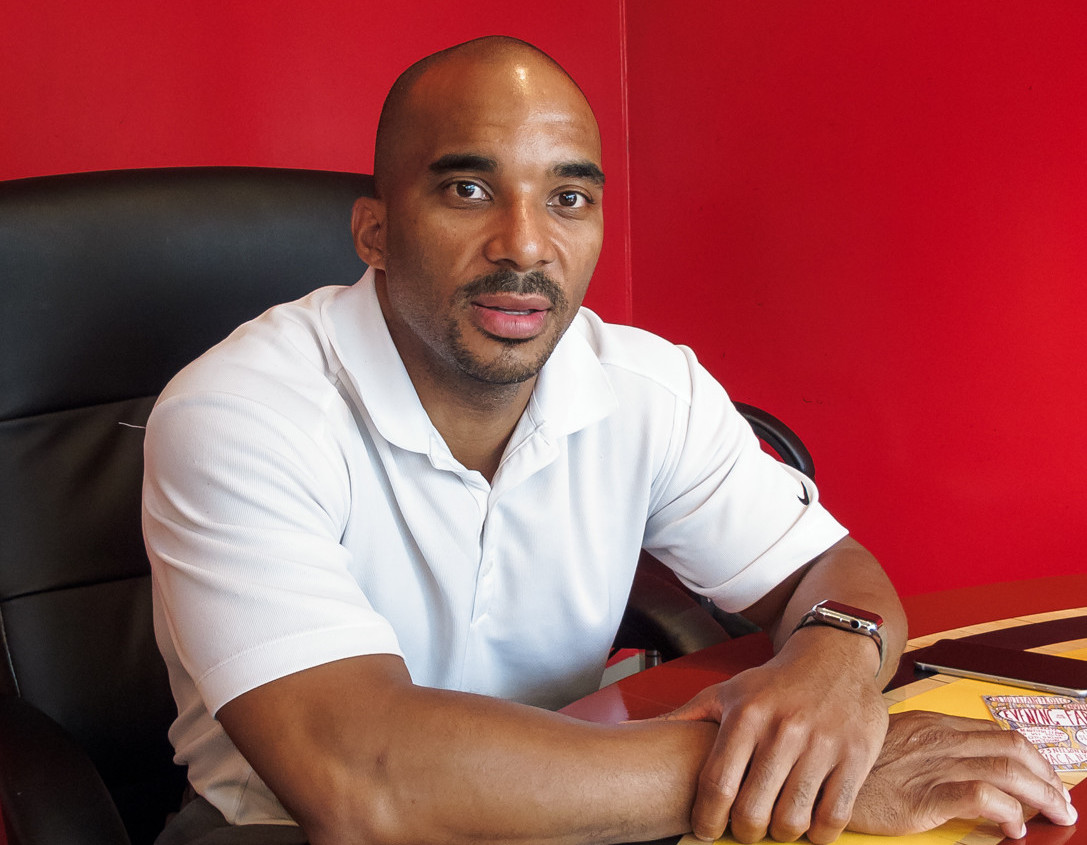John Yoon ’16: Could you talk about your job in the summer?
Luvelle Brown: I’ve always said that at this level, the central office level, the summers are as intense and oftentimes more intense than the regular academic school year when students are here. … We’re doing a lot with budgeting, facility, capital improvements, so we’re really busy in the summer as we look to finish out one school year and prepare for the next. Not a lot time off, not a lot of downtime. It is tougher, I would say, for me, because we don’t have the students here to provide that inspiration and motivation that often we get from young people every day.
JY: A recent New York Times article brought the issue of nationwide teacher shortages to the public’s eye, highlighting that some districts are hiring people without the proper teaching experience, let alone credentials, to teach. How does Ithaca fit into this big picture?
LB: Everyone here is qualified and we are not running into teacher shortages. … As of right now, we aren’t as significantly impacted as some of the schools that you read about, but it’s definitely not making it easier for us, either. On occasion, we’ve seen some pools not be as large as before. We would have around 70 to 80 people apply for a position. Now that’s down to 35 and 40. At times, we’ve seen the quality is not as good as we’ve seen in the years past. However, we’re still attracting and able to hire the best people out there.
JY: The Chromebook initiative is going into effect this fall. But at the high school, where most of class time is spent with lecture (with the smart board) or group discussions (without any technology), I can’t envision teachers using the technology tools so much in class. I am afraid they’ll become like Smart Boards today. They’re used by many teachers as projectors and not interactive whiteboards while the touch feature was their biggest selling point.
LB: When we were implementing [the Smart Boards], it was more about the projector and being able to project from a device onto a screen. That was the biggest selling point. Most of our classrooms didn’t have a projector or a document-camera in them. And teachers were begging for that.
JY: Can teachers decide not to use the technology?
LB: I ask the teachers to engage, educate, and empower. And I trust the outstanding faculty that they do that every day. If that’s going to require our learners to use the tool for 10 minutes, 20 minutes, 30 minutes a day, then so be it. If it means they don’t even take them out of their backpacks, I’m empowering us to have that decision. I trust folks to make the right decisions as far as teaching and learning.
JY: Some teachers I have been able to speak with have said that Chromebooks are useful tools for research and collaboration. What is your opinion on teacher websites and online course, which are not just tools for research and collaboration but actually aim to teach?
LB: The videos that are out there that support this “flipped approach” still rely on an outstanding teacher helping facilitate the conversation and the learning. The Khan Academy videos and the other videos are just a resource, a website, to find some valuable information.
JY: In the future, do you foresee mobile technology completely replacing textbooks?
LB: Not right now. In time, I see the majority of textbook and written material being available in the digital space. I think that’s a few years off from now, but everything we read, all the trends that we see, the way that they are updated dynamically and for free, when we’re paying 100s of dollars for textbooks that out-date when they’re printed, it’s pretty obvious that we’re going to be transitioning to digital spaces, but that will take some time.
JY: What will the technology initiative look like in 5 years?
LB: My vision in 5 years is that we won’t be having this conversation about technology, that these tools will be as integrated to the good teaching and learning process as a pencil. I’m hoping that in 5 years, folks will think of this as silly to ask me about a Chromebook as they would be to ask why we’re using a pencil in the classroom. These tools are necessary, from my perspective, in order to build the kind of knowledge our young people need to build today to access the kind of information, to stimulate their thought, to collaborate with people all over the world—to create in digital spaces. Those things are necessary for college- and career-ready young people. I’m hoping and wishing for the conversations to shift away from which tools we’re using, how many are going to be there. And so in 5 years, I hope we’re there.
“Ask the Admins” is a recurring column that anyone can write. Contact news@ihsattler.com.

